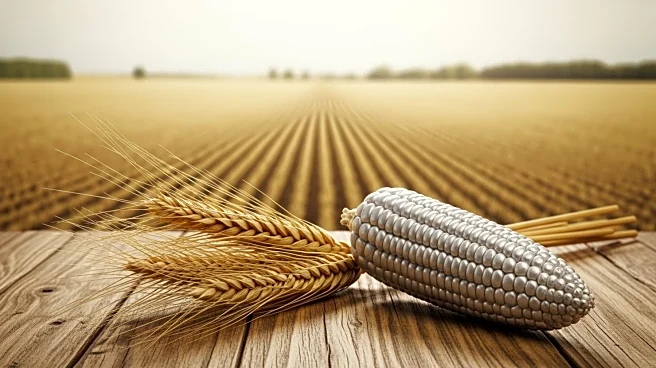What's Happening?
The war in Ukraine has aggravated existing tensions on the agricultural commodities market. Since late 2021, prices for commodities such as grains and vegetable oils have reached record highs, surpassing
even the levels of the global food price crises of more than a decade ago. The invasion of Russian forces in Ukraine has sent prices soaring even higher, affecting import-dependent countries in the Middle East and North Africa (MENA) region and sub-Saharan Africa. Disruptions to exports from the Black Sea region and high prices are destabilizing food security in these regions. However, global demand for wheat is expected to be met in the current marketing year since countries such as Australia, Brazil, and the USA will increase exports to fill the gap left by Russia and Ukraine.
Why It's Important?
Russia and Ukraine are key exporters of agricultural commodities, with Russia being the top global exporter of wheat and fertilizers, while Ukraine is the largest exporter of sunflower oil and the fourth largest exporter of corn. Their combined export market share for 2015-2020 was significant for wheat, corn, sunflower oil, and fertilizers. The war in Ukraine is likely to have the greatest impact on regions that depend on imported wheat, particularly from Russia and Ukraine, as a key part of their diets. The greater this combination of factors, the more the population is at risk of suffering from food insecurity.
What's Next?
Supply disruptions could intensify in the medium term, causing further food instability in the Global South. No noticeable respite is expected for the coming 2022/23 marketing year. Market developments in the coming marketing year and beyond are difficult to predict, leaving room for speculation only. The major unknown variable is how long the conflict will last and if, when, and how peace will eventually be reached. This will largely determine production and investment opportunities, market access and trade logistics, and the political (economic) conditions in the agri-food sector, especially in Ukraine and Russia.
Beyond the Headlines
Openness to global trade is needed to cope with the crisis. The current conflict exposed and exacerbated tensions on international agricultural commodity markets existing amid the COVID-19 pandemic. Import-dependent countries with low per capita incomes are particularly vulnerable to shocks occurring amid the war in Ukraine, which further increase their risk of food insecurity.









